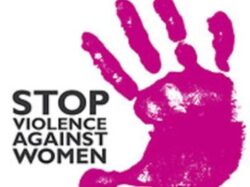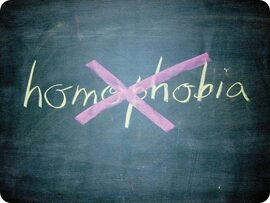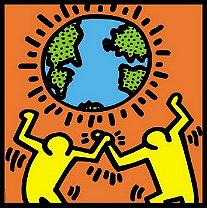Contenuto della pagina

The Project "HERMES - Linking network to fight sexual and gender stigma" is designed to help prevent violence against women and GLBTQI population and is an example to create good practices to face sexual and gender stigma, suffered by people living in European countries and especially in Italy, Spain and Ireland.
The WHO (World Report on Violence and Health 2002) stated that violence is a worldwide major public problem of health, observing the dramatic increase in the frequency of violence towards people of all age and sex, but especially women, children and adolescents; moreover, OMS has underlined the importance of introducing and implementing specific policies and programs to prevent violence in society and mitigate its effects.

On women's conditions ...
As for women's conditions, the Convention of United Nations on the elimination of all forms of discrimination against women (CEDAW) has remembered that discrimination against women violates the principles of equal rights and respect for human dignity, hinders the participation of women in equal conditions than men's ones in political, social, economic and cultural life of their country, hindering positive growth of society and family and making more difficult full development of women's potentialities.
In the three countries involved in the project, women suffer a significant situation of violence:
- In Ireland, although several politics for women protection exist, (Act 1996 on domestic violence and partners abuse), the World Report on Violence and Health (WHO, 2002) reported that out of a sample of 679 women which have suffered physical violence, only 20% had reported the violence to the police. Women carry on suffering several and significant situations of discrimination: one for all is that all abortions are illegal and subject to punishment (in theory, abortion is legal if there is a risk to the life of the woman); that bindes many women to go to England, Scotland or Wales where it is legal to have an abortion up to 24 weeks of pregnancy.
- In Italy, an analysis of ISTAT (2007) estimates that 6 million 743 thousand women between 16 and 70 years old have been victims of physical or sexual violence during their life (31.9% of the sample). 5 million of women have been sexually abused (23.7%), 3 million 961 thousand have suffered physical violence (18.8%). About 1 million of women has been victim of rape or attempted rape (4.8%). 14.3% of women with a current or previous relationship has suffered of physical or sexual violence by their partners at least once; considering only women with an ex partner the percentage reaches 17.3%. 24.7% of women have been abused by another man. While physical violence is often acted by partners (12% versus 9.8%), the contrary happens for sexual violence (6.1% versus 20.4%), especially for the relevance of sexual harassment.
- In Spain, the number of victims of gender violence between 1st January 2003 and 28th February 2010 was 478 subjects (Mystery of Equality of Spain). However, we can note that the total number of all calls to national service for gender violence has been of 169.140 calls between 3rd September 2007 (year of activation of the service) until 28th February 2010, with a daily average of 186 calls.
Although these data are already alarming, we should consider that the most part of violences doesn't get to the attention of legal and social protection agencies (police, hospital, etc.)

On LGBTQI conditions ...
For what concern GLBTQI population's conditions, European Parliament enacted a resolution on homophobia in 2006, worried by numerous events in several Member States such as: prohibition of performing gay prides; use of discriminatory language, full of hate, by policemen and religious leaders; lack of protection and even suppression of pacific demonstrations by the police; violent demonstrations by homophobic groups; introduction of constitutional laws to prohibit same-sex unions. The EP underlines the importance of an EU and Member States action in order to eradicate homophobia and promote a culture of freedom, tolerance and equality among citizens and in legal orders of all Member States.
As for the specific situation of the states involved in HERMES:
- In Ireland, Norman & Galvin (2006), in a national report, investigated the points of view of 725 SPHE (Social, Personal and Health Education) teachers and their perceptions of homophobic bullying: they found that 79% of teachers was aware of verbal homophobic bullying, and 16% was aware of physical bullying related to homophobia. However, in Ireland homophobic intention is not considered an aggravating circumstance of criminal offences.
- In Italy, there aren't statistic data on homophobic and transphobic violence and it's also difficult to gather official information from police, especially because it is not considered a specific crime. Furthermore, the majority of cases of homophobic and transphobic violence is not denounced for the lack of perception of a real protection and for internalized homophobia which makes even more difficult to denounce the violence. The only available report is an ArciGay Report (2009) from which we learn the following information regarding crimes of homophobia and transphobia: In 2008: Homicide: 9, Violence and aggression: 45, Extortion: 7, bullying: 5, Vandalism: 9. In 2009 (January-May): Murders: 6, Violence and aggression: 26, Extortion: 5, Bullying: 2.
- Although in Spain homophobic intention is an aggravating circumstance of a crime - according to a report made by Federación Estatal de Lesbianas, Gays, Transexuales y Bisexuales, realized involving boys and girls till 25 years of age of all Autonomous Communities - 60% of GLBTQI boys and girls has suffered psychological abuse and 6.5% has been victim of physical assaults in a public place. In the classroom, about half of them denounces psychological violence by schoolmates, and 7% has been assaulted because of its homosexuality. One out of three gay or lesbian adolescents has felt mentally and physically violated by those who don't accept the way he/she is. Similarly, even in family, 20% declares problems of this kind.
This preliminary analysis shows that, despite the existing differences in legislation among the three Countries, the situation of sexual and gender violence and discrimination is strongly present in all three Countries.
Assumed this ...
These considerations have encouraged a group of psychologists in TEMOESUS (Department of "Teorie e Metodi delle Scienze Umane e Sociali" of the University of Naples "Federico II") with a strong personal interest in the prevention of sexual and gender stigma to elaborate the idea of HERMES. Several members of the group collaborate with NGOs active in this area.
Therefore, Naples group has conceived the project as a wide collaboration project between TEOMESUS and relevant NGOs. Members of the group are in contact with researchers of the Universidad Computense in Madrid (UCM) and of Women's Center of University College of Dublin, School of Social Justice (UCD). The other italian partners are: Arcigay Naples Antinoo (ANA); le Kassandres (LK) and Agedo Palermo (AP).
The triangle Ireland-Italy-Spain has been working parallel for the main aim of the project: creating a network between involved Countries and between territorial associations engaged in preventing and fighting sexual and gender stigma.



Objectives
The specific objectives of the project are:
- Acquisition of existing knowledge and new data about gender and sexual stigma and about violence against women and GLBTQI population
- Individualization of interpretative hypothesis and explanatory variables for phenomena object of the project
- Exchange of knowledge produced at a national and trans-national level
- Individuation, exchange and transmission of good practices useful to face the problems object of the project at a national and trans-national level
- Mapping, in the three countries, territorial services, their respective roles and functions, services dealing with prevention of gender and sexual discrimination and violence, dealing with protection and support to victims
- Individuation of points of strength and weakness in the activities of territorial services
- Developing innovative methodological, training and evaluating tools, in order to sustain and implement a territorial net of various organizational and professional cultures for the prevention of discrimination and violence related to gender and sexual stigma and for victims' protection
- Creating/expanding the net for protection and support to victims, women and GLTBQI population at risk
- Diffusion of information and knowledge on the project's topics: sexuality, sexual orientation, gender culture and differences, gender and sexual violence, discrimination dynamics, homophobia, transphobia, transexualism, intersexualism, sexual diversity, women and GLBTQI population civil rights
- Training and professional updating of the "first responders", lawyers and associative realities that intercept gender and sexual discrimination and violence
- Training for educational agencies focusing on teaching ethics in the relationships.
- Development and/or implementation of competences to recognize and hold uneasiness and violence related to sexual and gender stigma
- Furnishing tools and successful practices for the prevention and support to the discrimination and violence towards women and GLBTQI population
- Investigation of the phenomena in contexts at risk
- Individuation of risk factors
- Introducing a "gender didactics" in pedagogical and educational agencies
- Empowerment of teachers' life skills
- Empowerment of students' life skills
- Dissemination of acquired knowledge, expertise and competences within the territorial community
Activities

All Hermes activities (section "Activities") are inspired by an integrative and empowering logic, in order to promote and implement potentialities and abilities of the same recipients. This will allow Hermes to continue, bringing advantages and benefits, also after project conclusion and in lack of further funds, as follows:
1. Intervention will create a solid and thick net of services which will continue being able to continue and stand up autonomously without any external support. Besides, Hermes website should carry on being managed by the members of the network and should be funded by institutions, commercial enterprises and organizations which will choose Hermes website for their advertisements.
2. Training for first responders, in addition to raise their awareness about project topics, aims at increasing their competences and at the acquisition of good practices from all those professionals which take care of women and GLBTQI population. In this way, project intervention will furnish them a "method" which, once learned, will be able to be proposed in future actions and spent in daily activities. Participants will be also helped with the constitution of one or more mutual help groups which, after the conclusion of the project, will provide professionals with autonomy in facing episodes of discrimination and violence related to gender and sexual stigma. These groups will also take advantage of the Network's existence.
3. Intervention of prevention in the schools at risk (section "Activities"), in addition to raising awareness about project topics, aims at the activation of processes of thought and acquisitions of awareness by teachers and students. The training model which has been set up can be exported and repeated in the following years and/or in other contexts, and that shows its capacity to maintain and sustain itself autonomously. Teachers and students will also be helped to constitute a permanent group, in schools strongly interested in Hermes topics, which will go on reflecting on these topics, and will look after on raising awareness about Hermes topics in the following years. The group will also aim at becoming the first support in possible episodes of discrimination and violence related to gender and sexual stigma in schools.